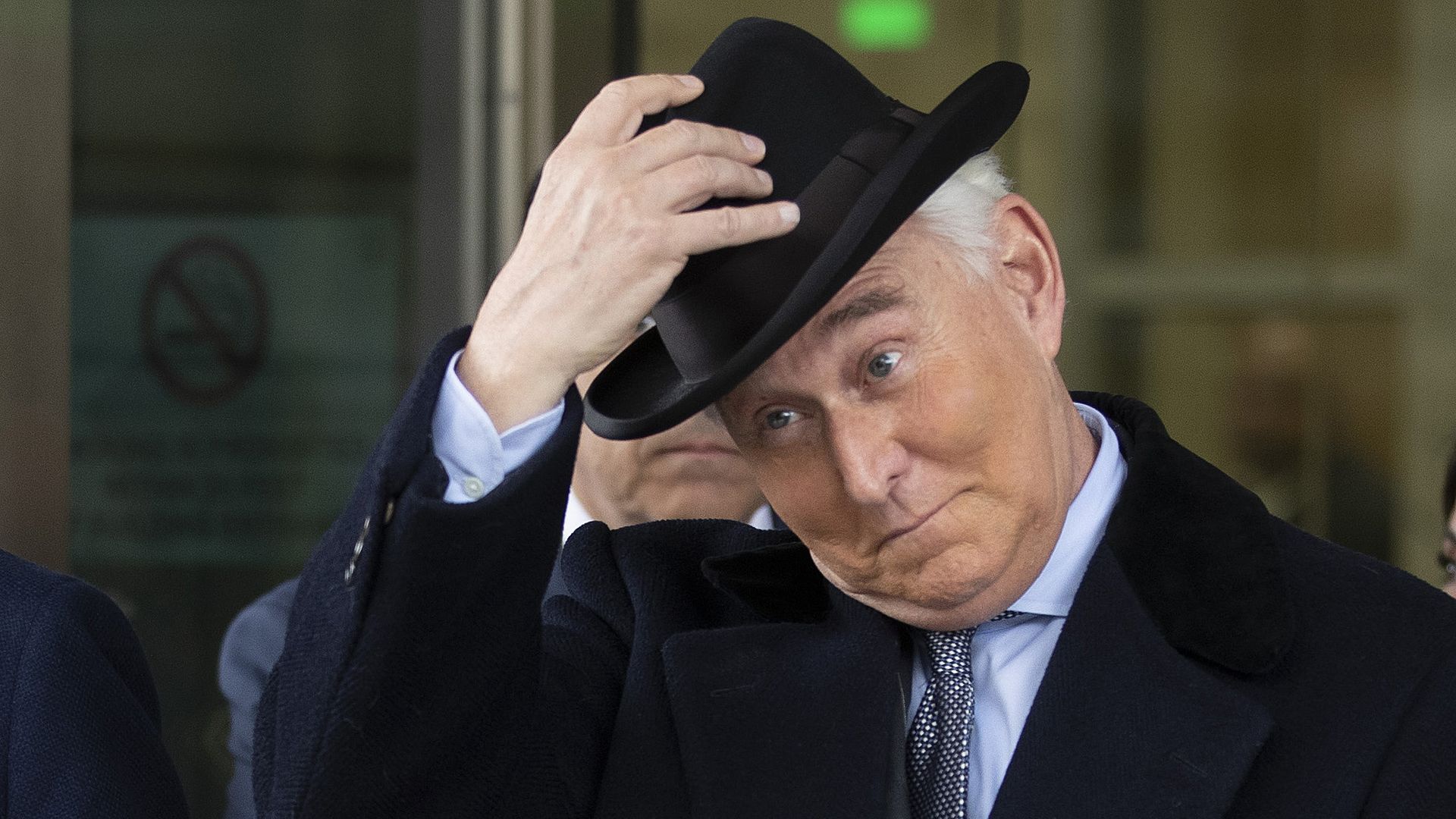Former Roger Stone prosecutor to testify DOJ intervened in case for political purposes
Add Axios as your preferred source to
see more of our stories on Google.

Roger Stone. Photo: Chip Somodevilla/Getty Images
Career prosecutor Aaron Zelinsky will tell the House Judiciary Committee on Wednesday that Justice Department leadership intervened in the sentencing of former Trump adviser Roger Stone for political purposes, according to his opening statement.
Why it matters: Zelinsky is one of two Justice Department whistleblowers who plan to testify before the committee about the alleged politicization of the Justice Department under Attorney General Bill Barr.
The big picture: Zelinsky, a former member of special counsel Robert Mueller's team, resigned from the case in February after the Justice Department submitted a new sentencing recommendation for Stone, overruling career prosecutors who had requested the former Trump adviser serve seven to nine years in prison for obstruction of justice, lying to Congress and witness tampering.
What he'll say:
- "In the many cases I have been privileged to work on in my career, I have never seen political influence play any role in prosecutorial decision making. With one exception: United States v. Roger Stone."
- "What I saw was the Department of Justice exerting significant pressure on the line prosecutors in the case to obscure the correct sentencing guidelines calculation to which Roger Stone was subject — and to water down and in some cases outright distort the events that transpired in his trial and the criminal conduct that gave rise to his conviction."
- "What I heard — repeatedly — was that Roger Stone was being treated differently from any other defendant because of his relationship to the president. I was told that the Acting U.S. Attorney for the District of Columbia, Timothy Shea, was receiving heavy pressure from the highest levels of the Department of Justice to cut Stone a break, and that the U.S. Attorney’s sentencing instructions to us were based on political considerations."
- "I was explicitly told that the motivation for changing the sentencing memo was political, and because the U.S. Attorney was 'afraid of the President.'"
Read his opening statement via DocumentCloud.
